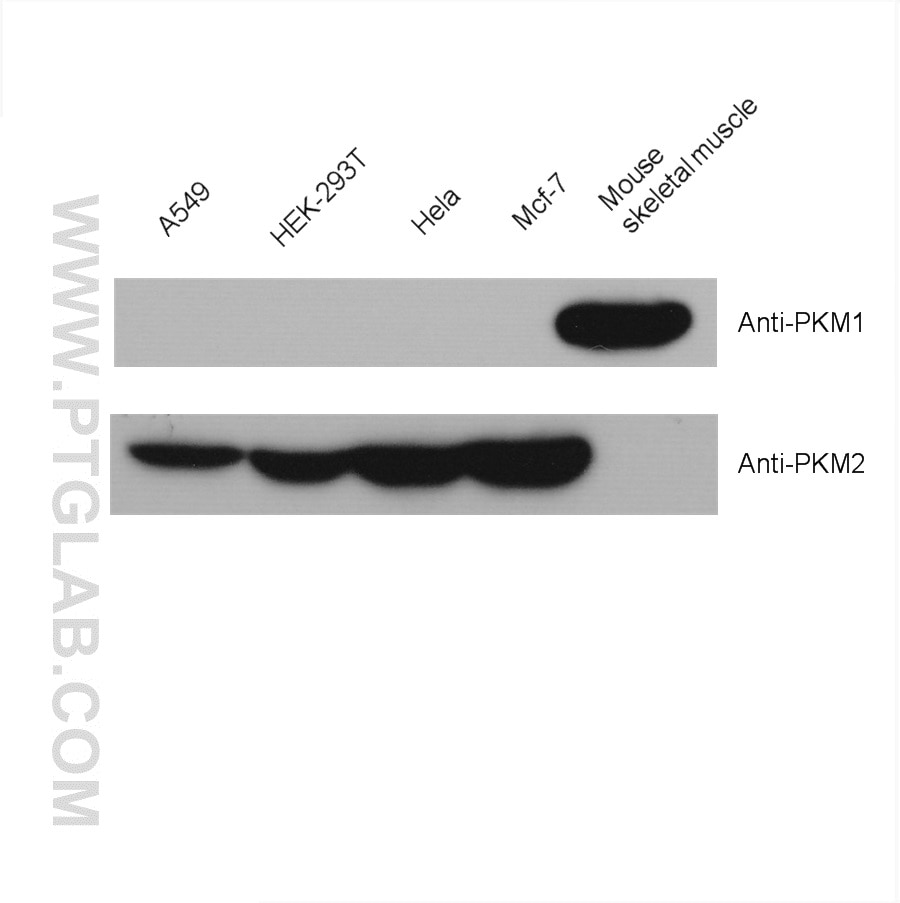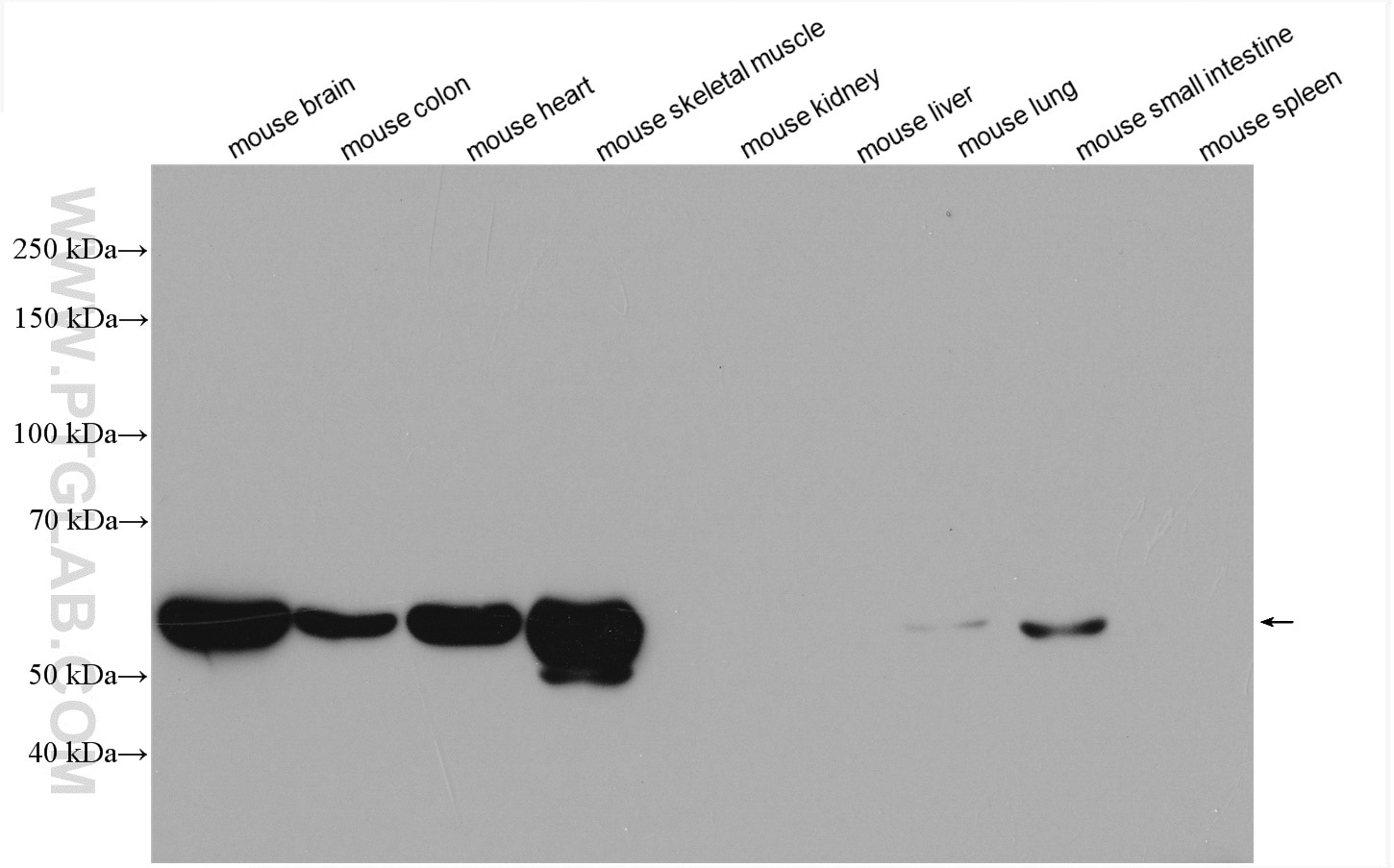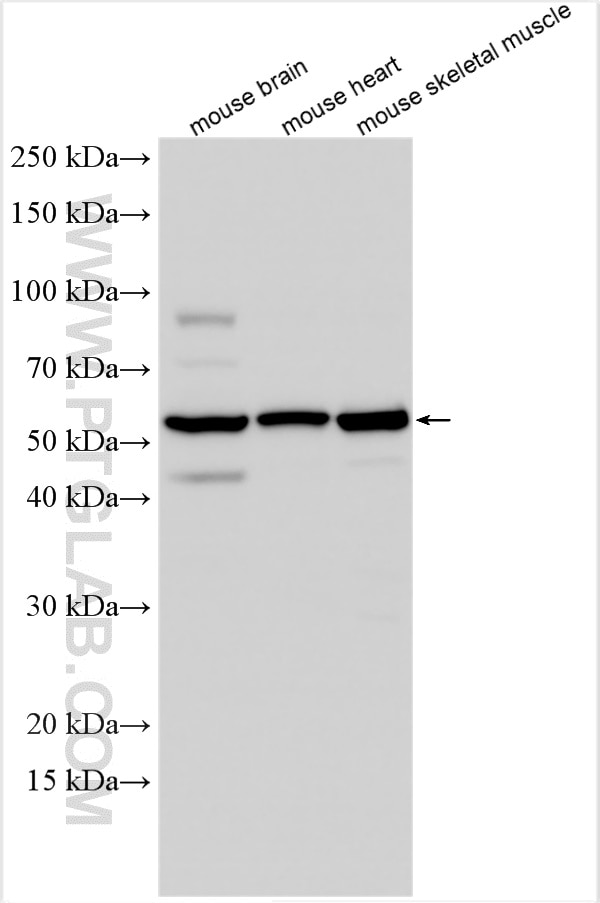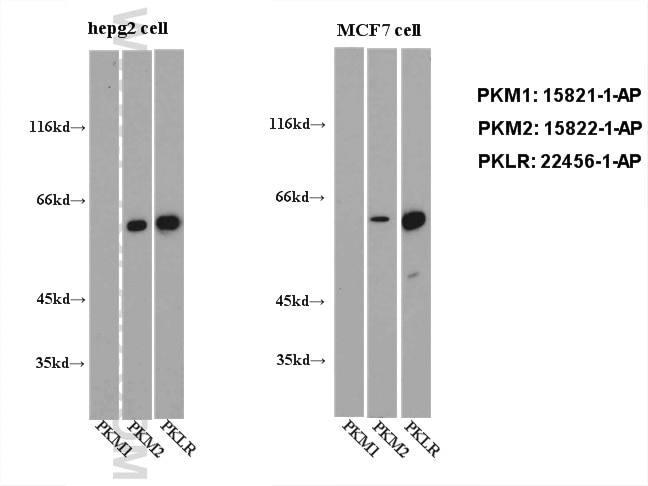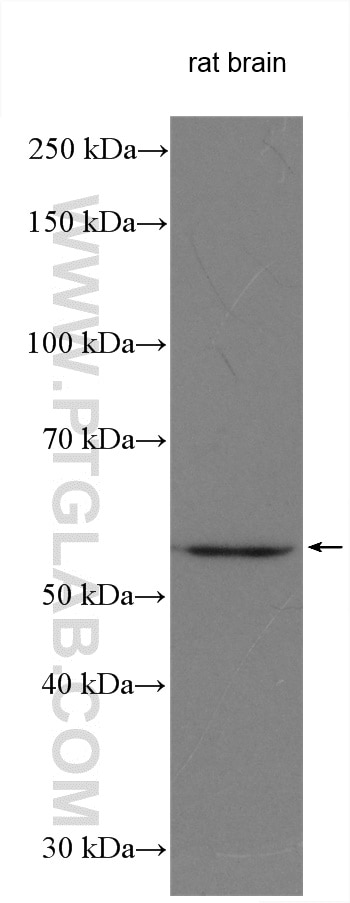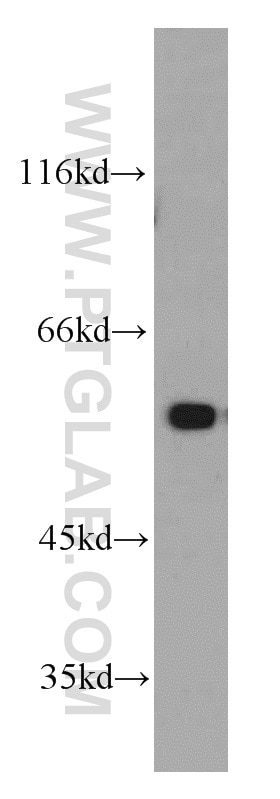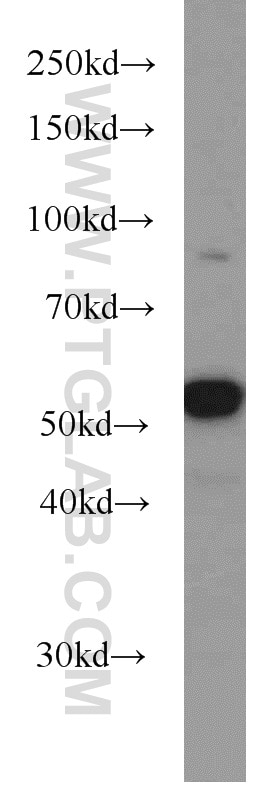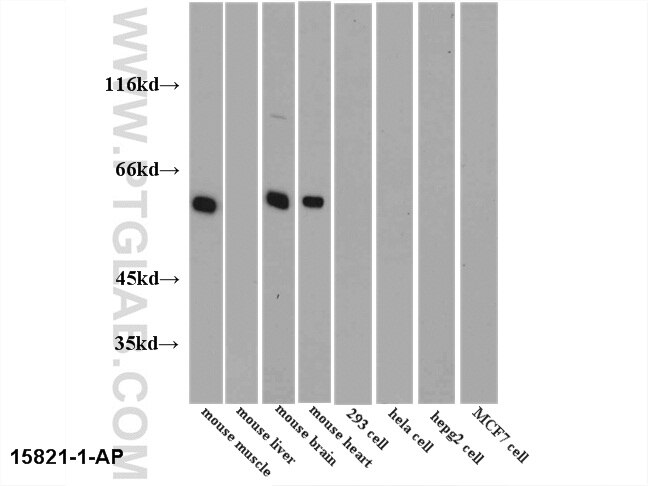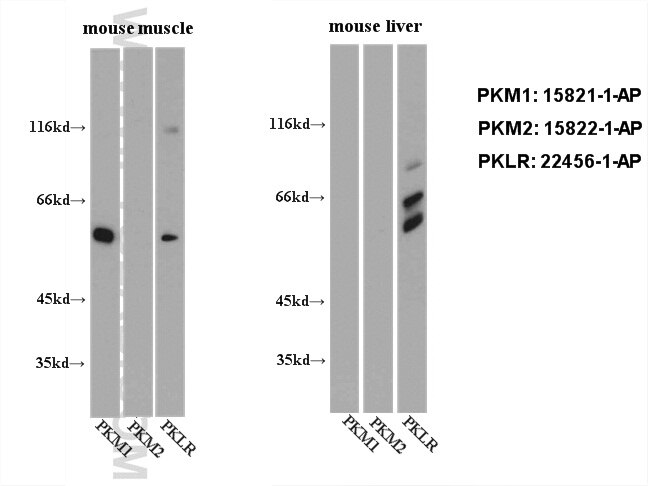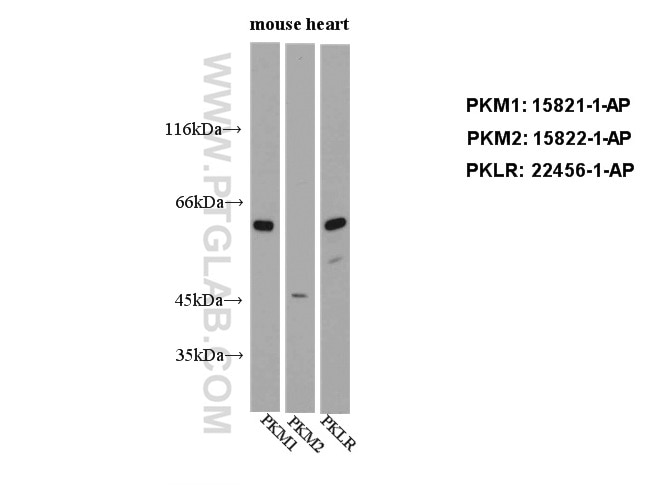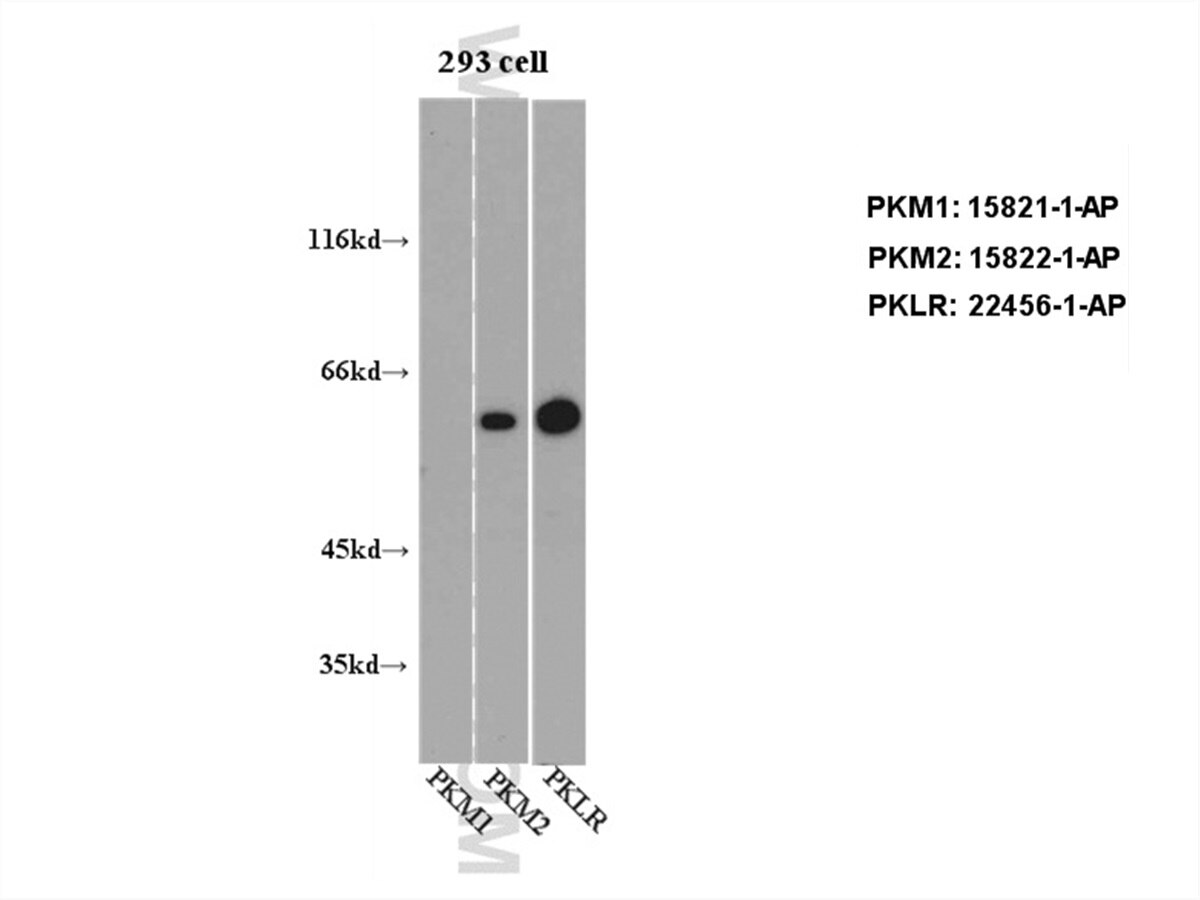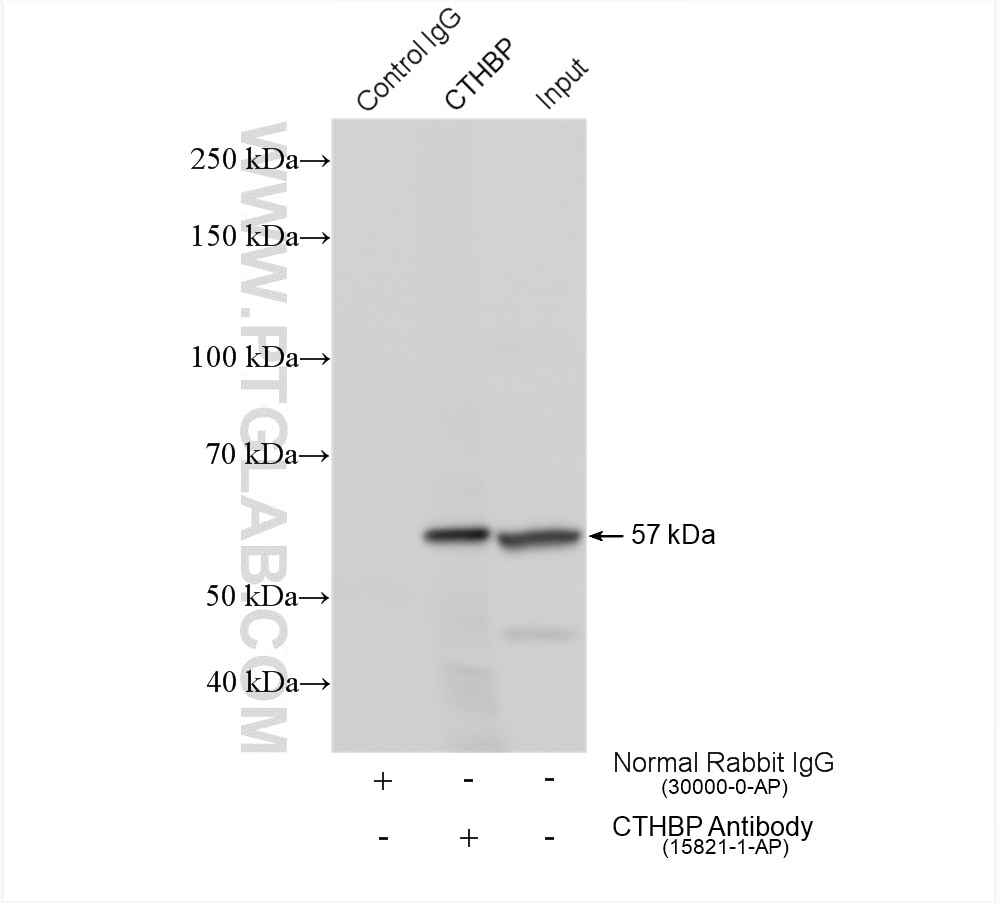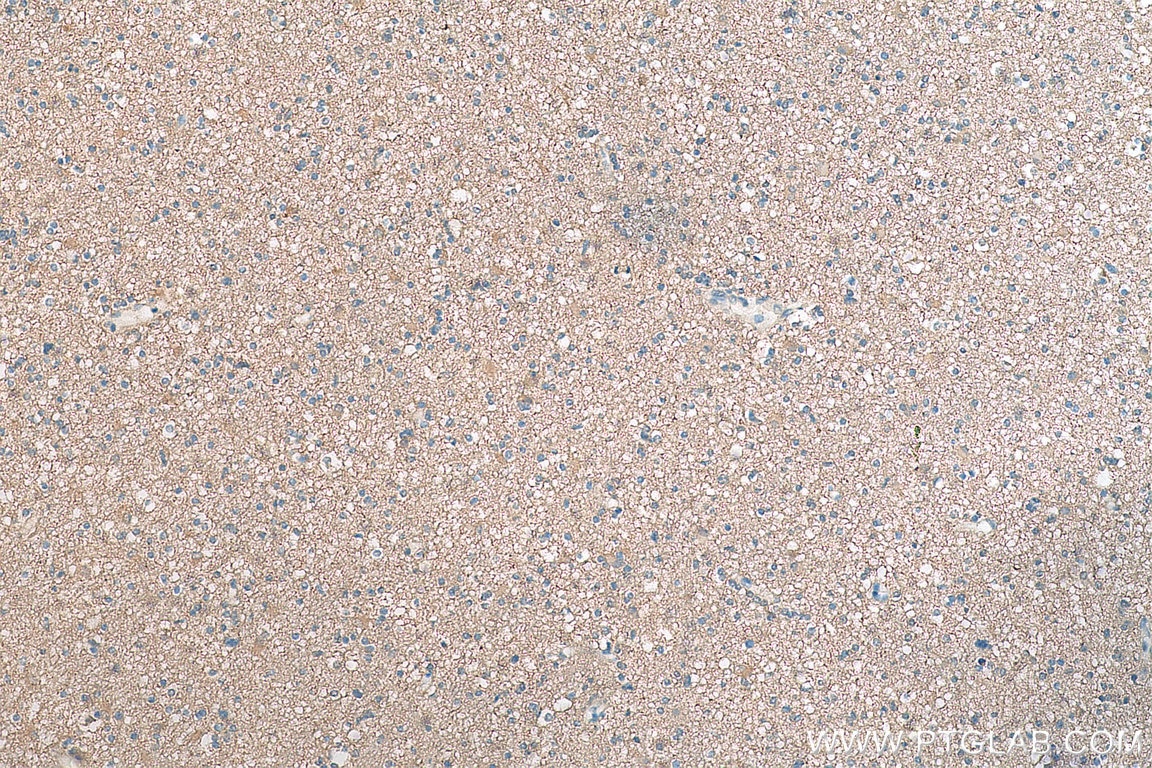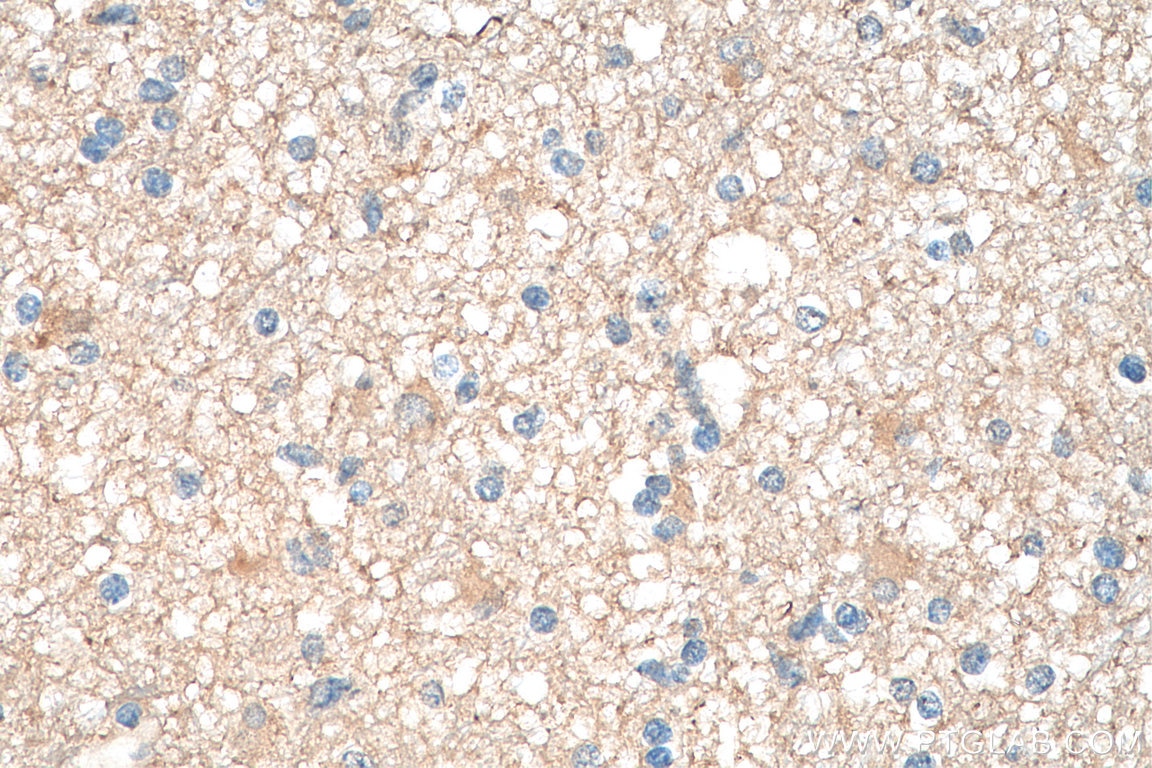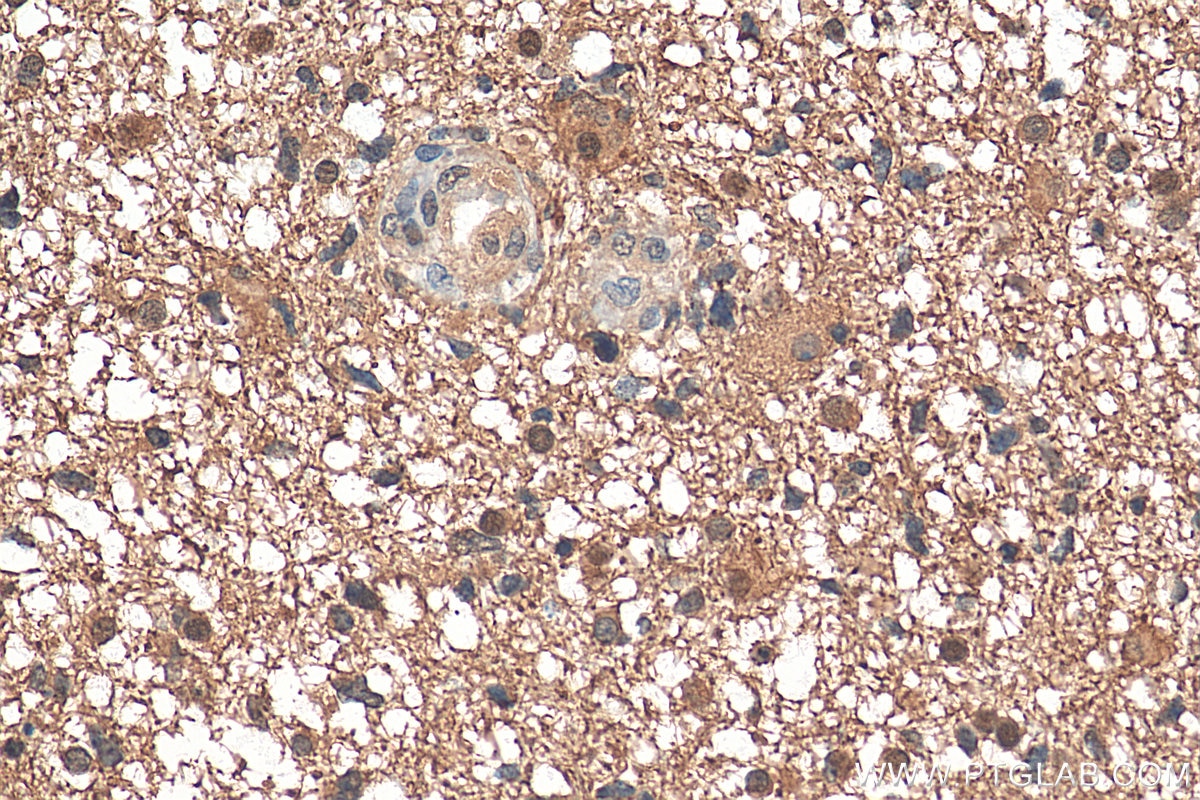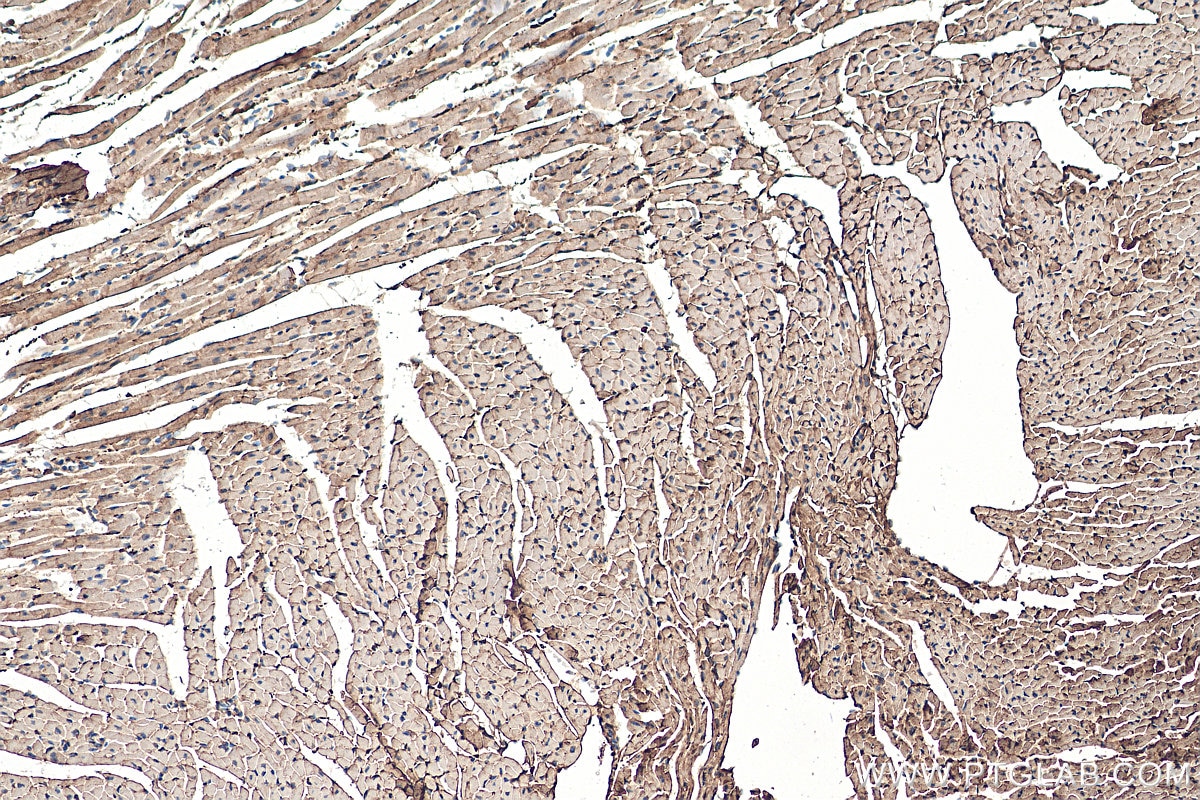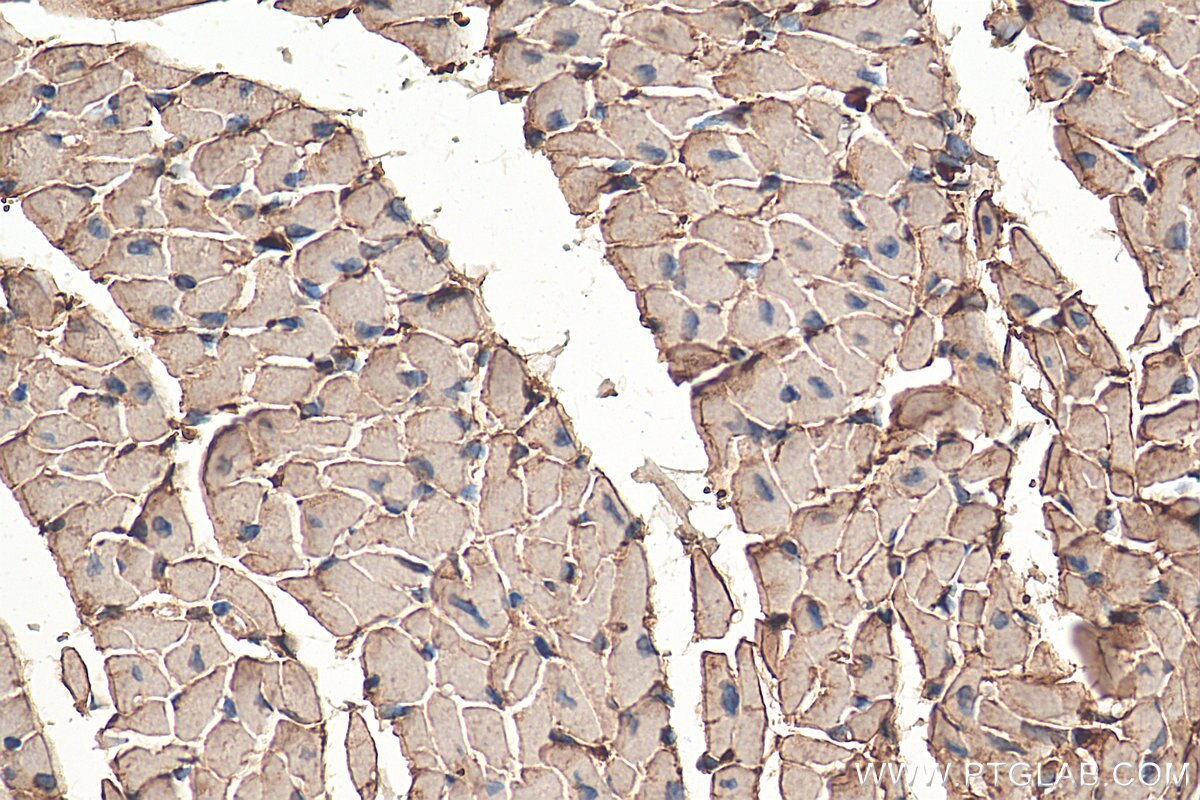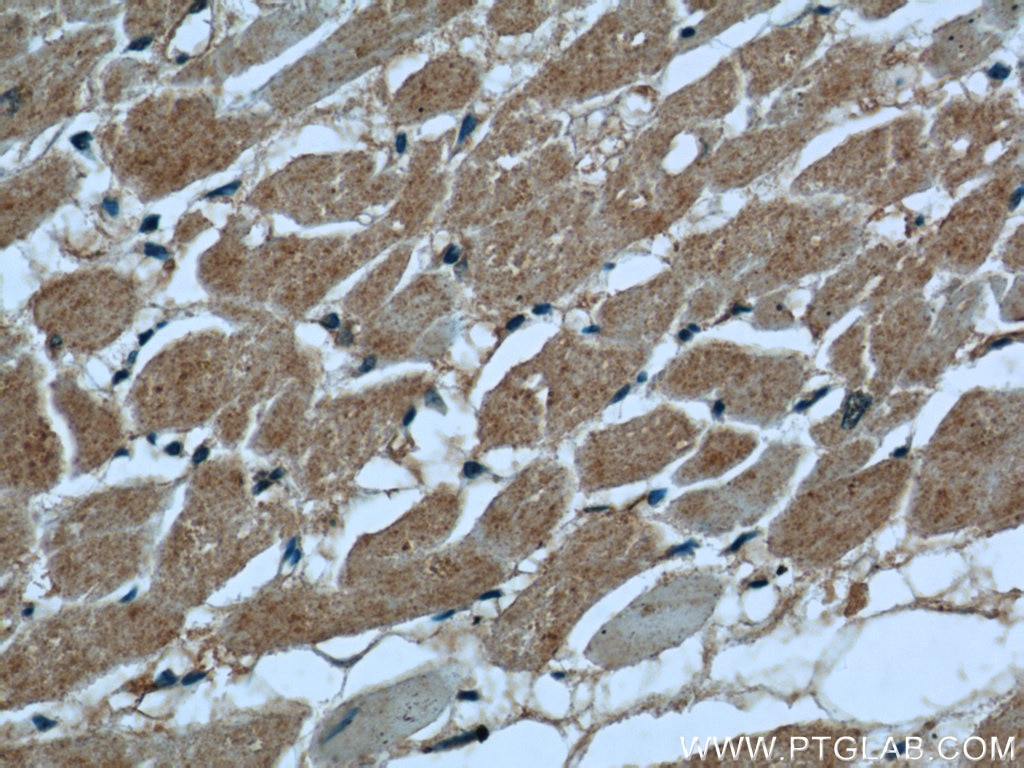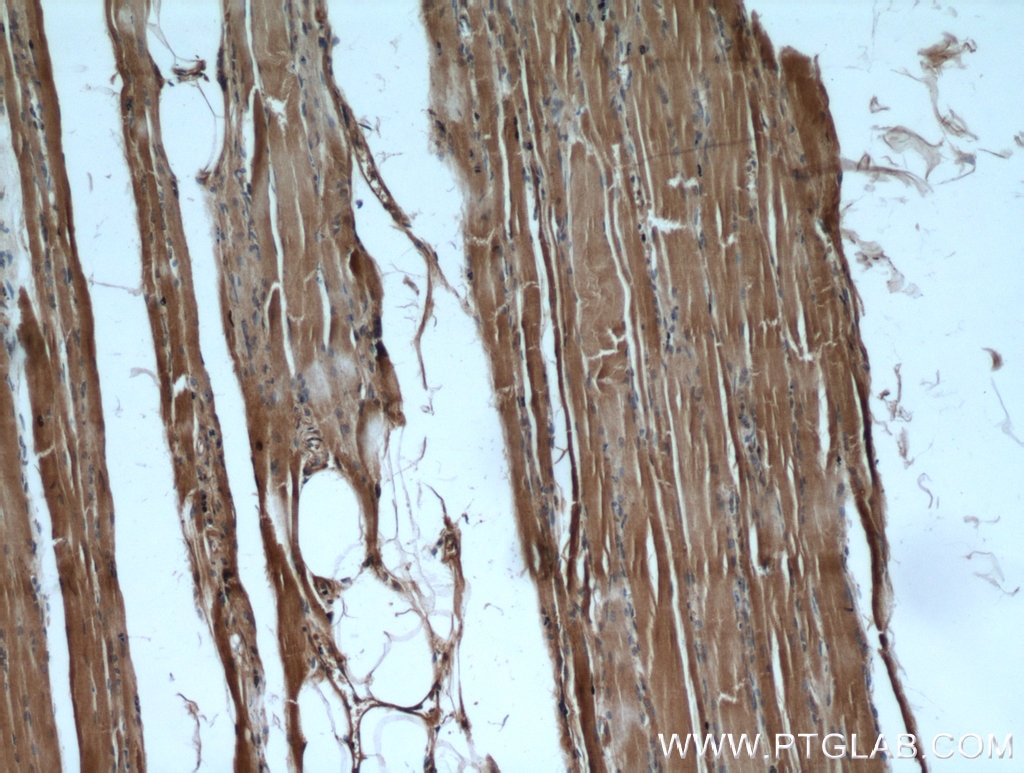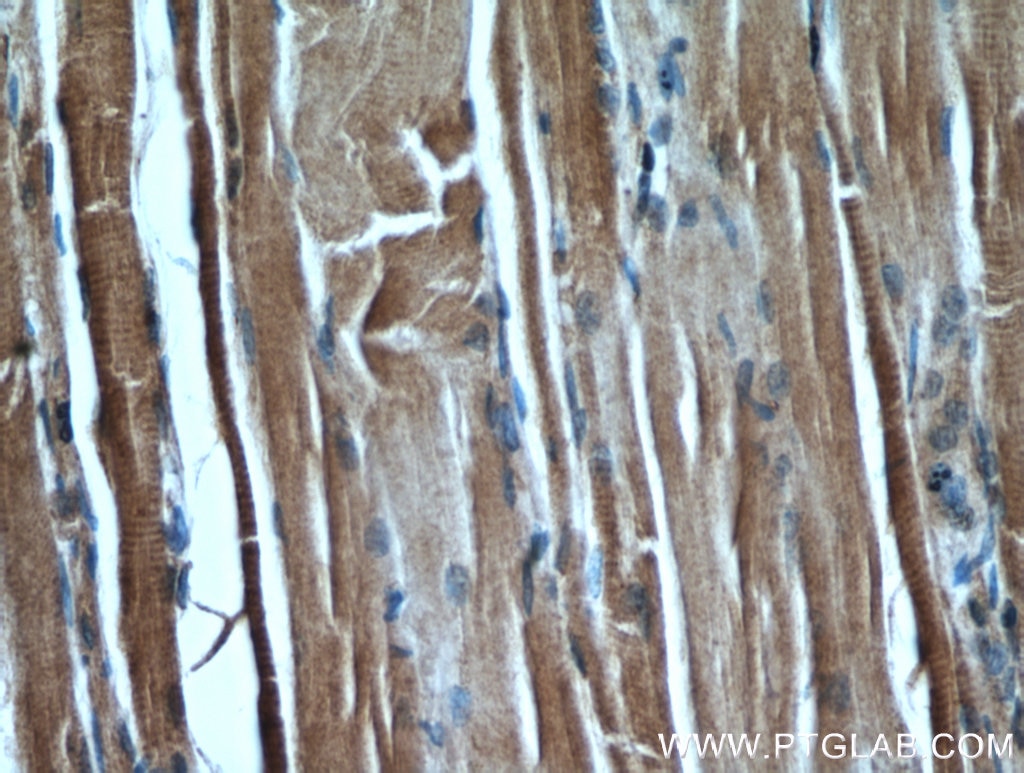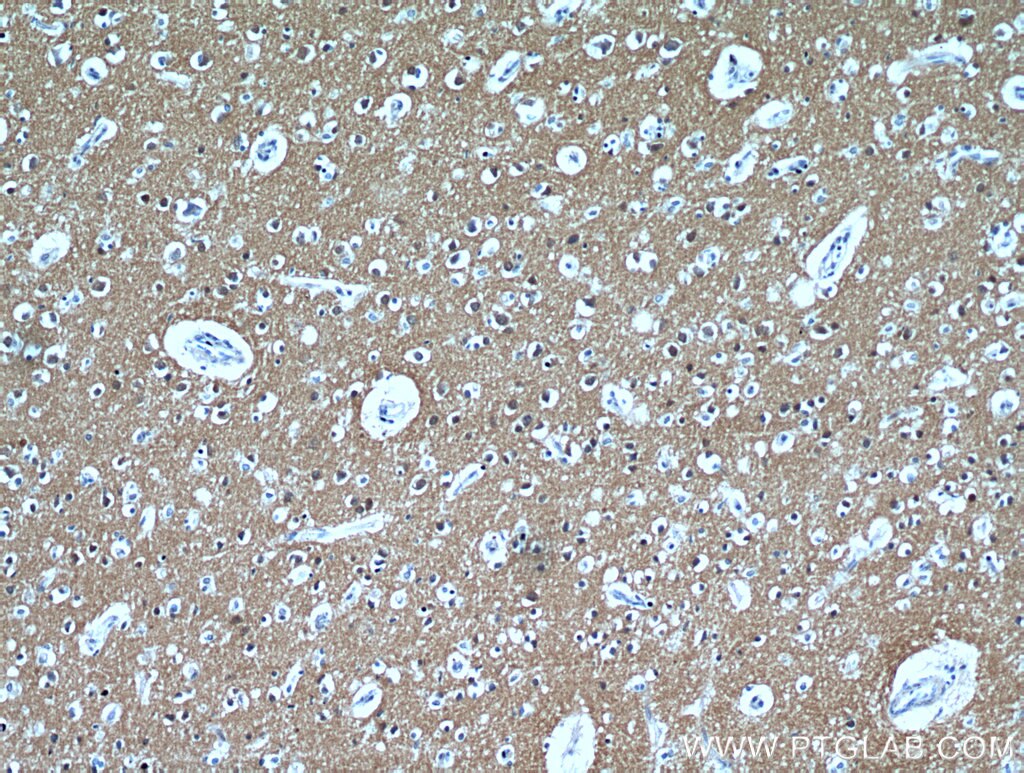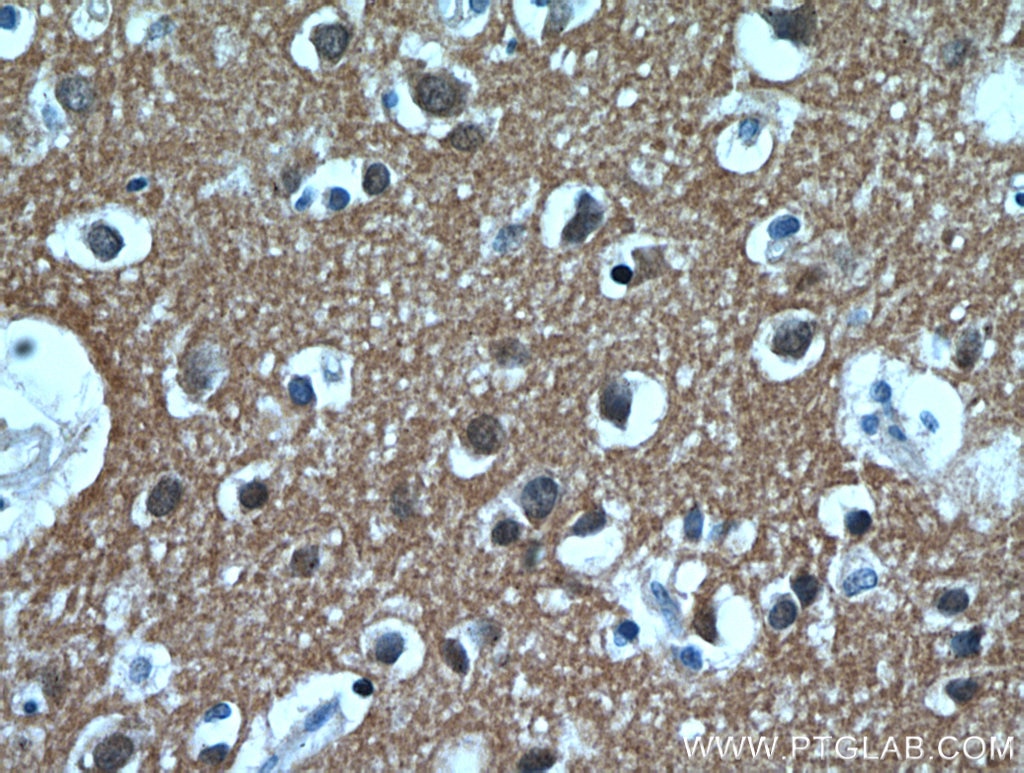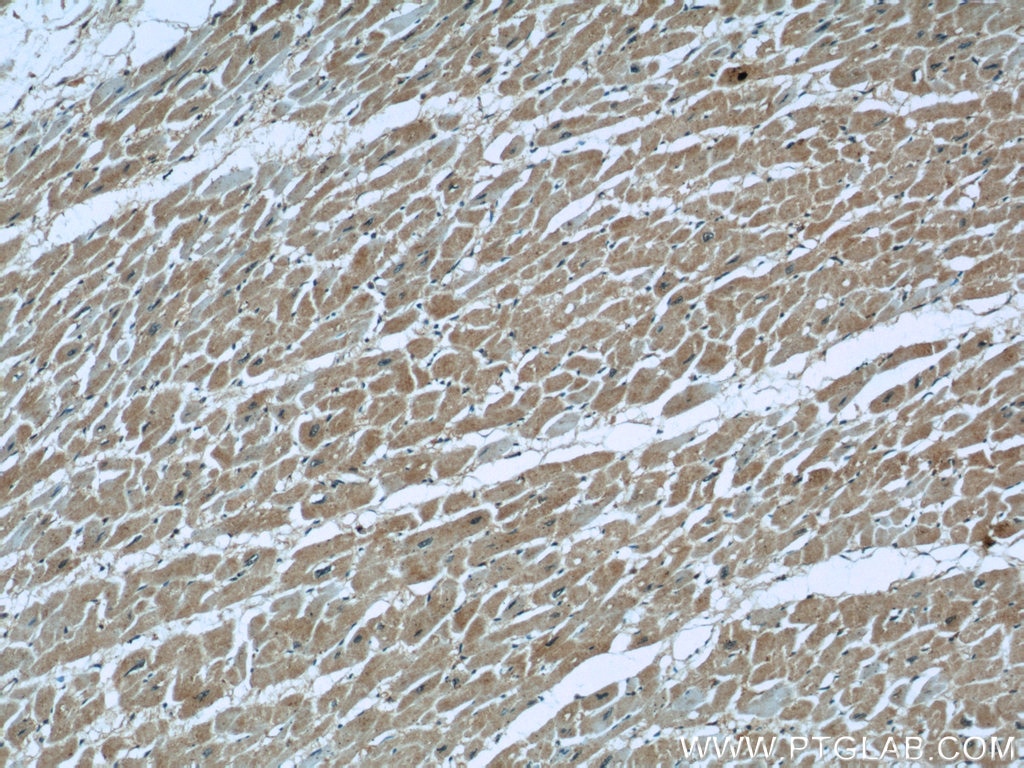Tested Applications
| Positive WB detected in | mouse brain tissue, mouse skeletal muscle tissue, multi-cells/tissue, mouse muscle/liver tissues, mouse heart tissue, 293 cell, HepG2/MCF7 cells, mouse colon tissue, rat brain tissue |
| Positive IP detected in | mouse brain tissue |
| Positive IHC detected in | human gliomas tissue, human skeletal muscle tissue, human brain tissue, human heart tissue, mouse heart tissue Note: suggested antigen retrieval with TE buffer pH 9.0; (*) Alternatively, antigen retrieval may be performed with citrate buffer pH 6.0 |
Recommended dilution
| Application | Dilution |
|---|---|
| Western Blot (WB) | WB : 1:5000-1:50000 |
| Immunoprecipitation (IP) | IP : 0.5-4.0 ug for 1.0-3.0 mg of total protein lysate |
| Immunohistochemistry (IHC) | IHC : 1:50-1:500 |
| It is recommended that this reagent should be titrated in each testing system to obtain optimal results. | |
| Sample-dependent, Check data in validation data gallery. | |
Published Applications
| KD/KO | See 3 publications below |
| WB | See 82 publications below |
| IHC | See 12 publications below |
| IF | See 5 publications below |
| IP | See 2 publications below |
| CoIP | See 1 publications below |
Product Information
15821-1-AP targets PKM1-specific in WB, IHC, IF, IP, CoIP, ELISA applications and shows reactivity with human, mouse, rat samples.
| Tested Reactivity | human, mouse, rat |
| Cited Reactivity | human, mouse, rat, monkey, bovine |
| Host / Isotype | Rabbit / IgG |
| Class | Polyclonal |
| Type | Antibody |
| Immunogen |
Peptide Predict reactive species |
| Full Name | PKM pyruvate kinase, muscle |
| Calculated Molecular Weight | 58 kDa |
| Observed Molecular Weight | 58 kDa |
| GenBank Accession Number | NM_182470 |
| Gene Symbol | PKM |
| Gene ID (NCBI) | 5315 |
| RRID | AB_2163820 |
| Conjugate | Unconjugated |
| Form | Liquid |
| Purification Method | Antigen affinity purification |
| UNIPROT ID | P14618 |
| Storage Buffer | PBS with 0.02% sodium azide and 50% glycerol, pH 7.3. |
| Storage Conditions | Store at -20°C. Stable for one year after shipment. Aliquoting is unnecessary for -20oC storage. 20ul sizes contain 0.1% BSA. |
Background Information
PKM, also named as OIP3, PK2, PK3, PKM, p58, THBP1, CTHBP and Tumor M2-PK, belongs to the pyruvate kinase family. It is glycolytic enzyme that catalyzes the transfer of a phosphoryl group from phosphoenolpyruvate (PEP) to ADP, generating ATP. It stimulates POU5F1-mediated transcriptional activation. PKM plays a general role in caspase independent cell death of tumor cells. PKM has 2 isoforms named PKM1 and PKM2. The primary pyruvate kinase isoform before tumour development is PK-M1; however, the primary isoform from four independent tumours is PK-M2 (PMID:18337823). This antibody is specific to PKM1 isoform.
Protocols
| Product Specific Protocols | |
|---|---|
| IHC protocol for PKM1-specific antibody 15821-1-AP | Download protocol |
| IP protocol for PKM1-specific antibody 15821-1-AP | Download protocol |
| WB protocol for PKM1-specific antibody 15821-1-AP | Download protocol |
| Standard Protocols | |
|---|---|
| Click here to view our Standard Protocols |
Publications
| Species | Application | Title |
|---|---|---|
Nature The M2 splice isoform of pyruvate kinase is important for cancer metabolism and tumour growth.
| ||
Nat Immunol NKILA lncRNA promotes tumor immune evasion by sensitizing T cells to activation-induced cell death. | ||
Sci Transl Med ATP citrate lyase drives vascular remodeling in systemic and pulmonary vascular diseases through metabolic and epigenetic changes | ||
Nat Commun Phosphoglycerate dehydrogenase activates PKM2 to phosphorylate histone H3T11 and attenuate cellular senescence | ||
Nat Commun Interactome analysis reveals that lncRNA HULC promotes aerobic glycolysis through LDHA and PKM2. | ||
Nat Commun The HIF-1α antisense long non-coding RNA drives a positive feedback loop of HIF-1α mediated transactivation and glycolysis. |
Reviews
The reviews below have been submitted by verified Proteintech customers who received an incentive for providing their feedback.
FH ziwei (Verified Customer) (12-05-2025) | very good! I can see the specific staining.
|
FH Swati (Verified Customer) (09-26-2025) | The antibody functions perfectly with no background. Clear band observed at 58kDa
|
FH Pallavi (Verified Customer) (03-31-2025) | I used 1:5000 anti-PKM1 15821-1-AP, it worked perfectly. The reviews were quite helpful to decide which antibody to buy. The delivery was on time. Just make sure the delivery company hands over the package to you. so better to keep a track of the package.
|

